What is the Difference Between Air Source Heat Pumps and Geothermal?
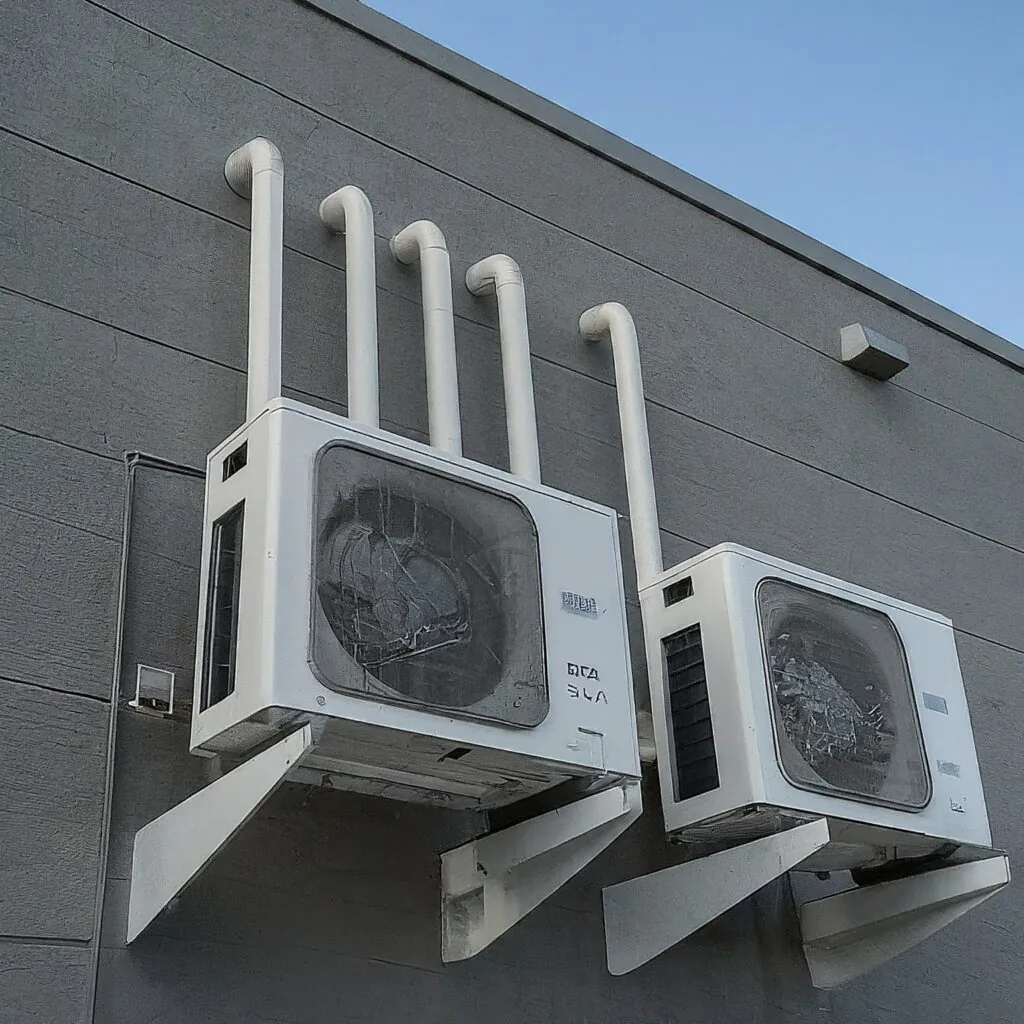
Apr 26 2024
Geothermal and air source heat pumps have a lot in common – in fact, they are essentially the same technology, just using a different way to expel and capture heat. One uses the air, and one uses the ground.
Air source heat pumps and ground source heat pumps are both types of heat pumps that utilize electrical energy to move heat around your commercial building, offering efficient heating and cooling. They function by extracting heat from a source and transferring it to your building. However, the key difference lies in where they extract this heat from.
Ground source heat pumps, also known as geothermal heat pumps, tap into the constant and moderate temperature of the earth. They achieve this by burying a network of pipes underground, either horizontally or vertically. These pipes circulate a fluid that absorbs heat from the ground and carries it back to the heat pump unit inside your home, where it’s processed and distributed as warm air.
Air source heat pumps, on the other hand, extract heat directly from the outside air. An outdoor unit draws in ambient air, even in cold weather, and concentrates the thermal energy it contains. This concentrated heat is then transferred inside your home to provide warmth.
A Very High Efficiency HVAC system has an air sourced heat pump with an ERV (Energy Recovery Ventilator) to save energy on the fresh air ventilation system. But you could certainly combine this same approach with geothermal and combine those with an ERV.
What is the cost Difference Between Air Source Heat Pumps and Geothermal?
The main advantage of air source heat pumps is their significantly lower upfront cost. Since there’s no need for extensive underground installations, the initial investment is much less compared to ground source heat pumps.
If you have lots of land, this may not be a huge difference. You do need to dig up the ground, and then lay vast loops of piping for the heat to be exchanged underground. If you don’t have lot’s of land, you can solve this by doing deeper. Going deeper, especially in scenario with lots of neighbors, is expensive.

However, it’s important to consider the trade-offs. While air source heat pumps are a budget-friendly option, their efficiency can be impacted by extreme outdoor temperatures. In very cold climates, the heat extraction process becomes more challenging, requiring the heat pump to work harder and potentially leading to higher electricity bills. In contrast, ground source heat pumps maintain consistent efficiency throughout the year because the ground temperature remains relatively stable.
Why Heat Pumps Reign Supreme in Efficiency over Natural Gas
While both natural gas furnaces and heat pumps provide warmth in your home, there’s a clear winner when it comes to efficiency: the heat pump. Let’s delve into four key reasons why heat pumps outperform natural gas systems.
Unlike natural gas furnaces that burn fuel to generate heat, heat pumps act like incredibly efficient movers. They capture heat energy readily available in the outside air, even during cooler temperatures. This captured heat is then concentrated and transferred to warm your home. Since they’re not creating heat from scratch, but rather relocating it, heat pumps achieve a much higher efficiency rating. This translates to significant energy savings on your utility bills.
Heat pumps boast a Coefficient of Performance (COP) rating, which indicates how much heat they deliver for every unit of electricity they consume. A typical heat pump can have a COP of 3, meaning it delivers three units of heat for every one unit of electricity used. In comparison, a high-efficiency natural gas furnace might reach an efficiency of around 90%, meaning it loses 10% of the energy it uses. This stark difference in efficiency showcases the clear advantage of heat pumps.
It’s true that extremely cold climates can affect heat pump performance. However, advancements in technology have equipped them to handle lower temperatures effectively. Additionally, in most regions, even with a slight dip in efficiency during very cold snaps, heat pumps still outperform natural gas furnaces throughout the year. So, even if your winters are harsh, a heat pump remains a more efficient and potentially cost-saving choice in the long run.
Which Saves More Energy in the Long Run, Geothermal or Air Source Heat Pump?
Over the long haul, a geothermal system will use less energy than an air sourced heat pump. However, it would be important to determine the additional cost of a geothermal system, to decide if it is better for your facility in the long run.
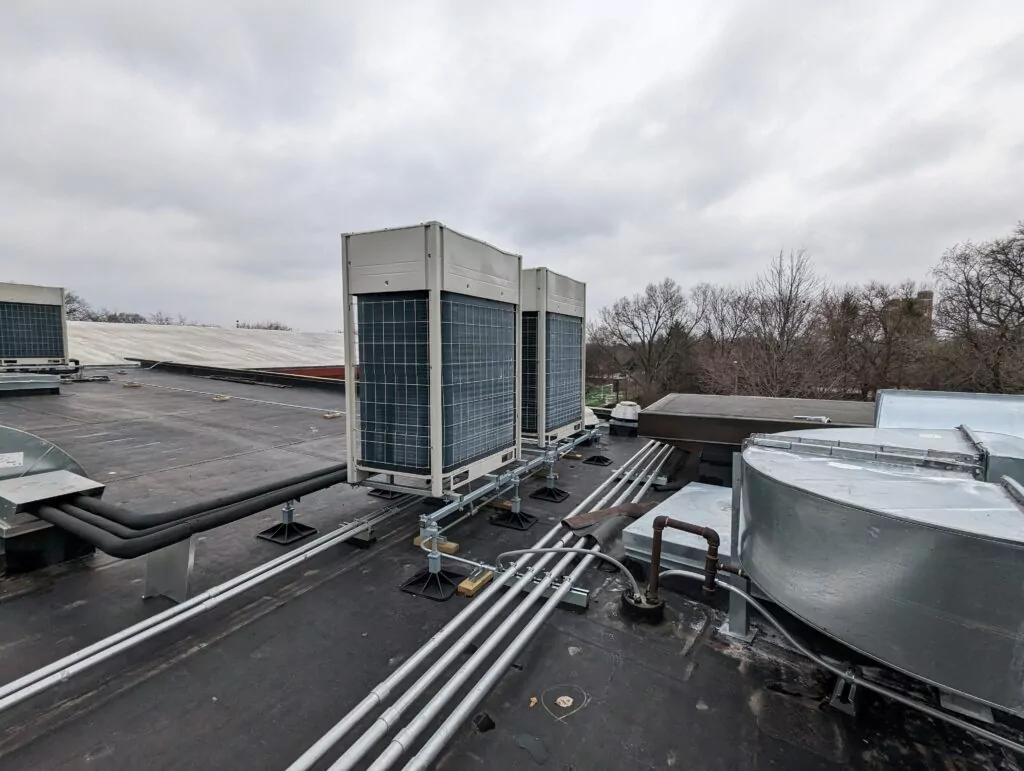
We performed energy efficiency services for a library that had Geothermal in Chicagoland, and they were very happy with the system. We have also installed air sourced heat pump systems for schools in Oak Park IL, and they also were very comfortable and saved over 60% compared to their past system. Both are great leaps forward in terms of energy efficiency, but geothermal is a bit better because of how moderate the ground stays in terms of temperature.
Are There Grants for Geothermal and Air Sourced Heat Pumps in Chicagoland?
Yes, there is a growing support for heat pumps, both geothermal and air source, for commercial work in Illinois.
Geothermal heat sourced tends to have more, including federal support from the Inflation Reduction Act. Locally, Comed is still studying some of the savings of projects we have completed – so rebates will be set on those.
Illinois has a goal of 60% of buildings electrified by 2050 – so geothermal and air source heat pumps will be prevalent in 2% more buildings each year until that time. So that means incentives at the state level are likely to come – and now is the right time to be thinking and planning for this important decarbonization transition. Reach out to Verde for an energy efficiency assessment today for your commercial building in Illinois.
Featured Posts
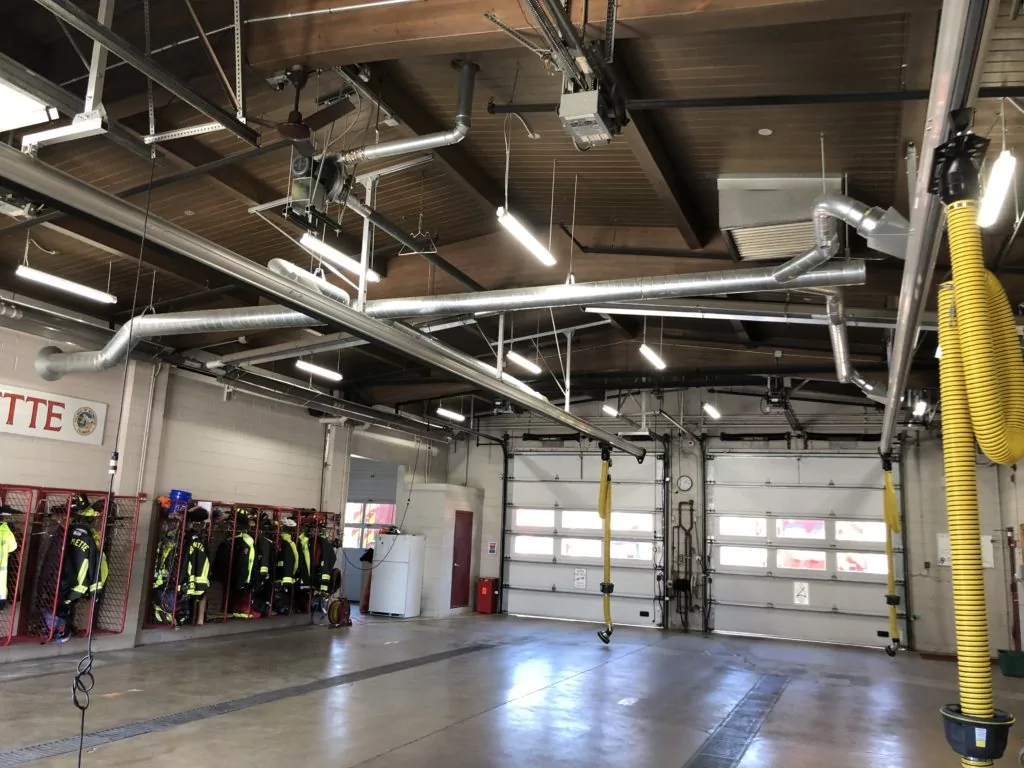
Mar 15 2021
Energy Savings Formula
In 2002, I became a firefighter in the north suburbs of Chicago. I was young and idealistic - loving almost every part of the job. However, I had another secret passion - sustainability. In addition…
Continue Reading >

May 02 2019
Verde Energy Efficiency Experts 10 Most Sustainable Companies in Chicago
In our energy efficiency consulting firm, we constantly look for inspiration from local companies that lead and innovate in clean energy and sustainability. Not all companies have billion dollar budgets, but that doesn’t mean that…
Continue Reading >
Related Articles
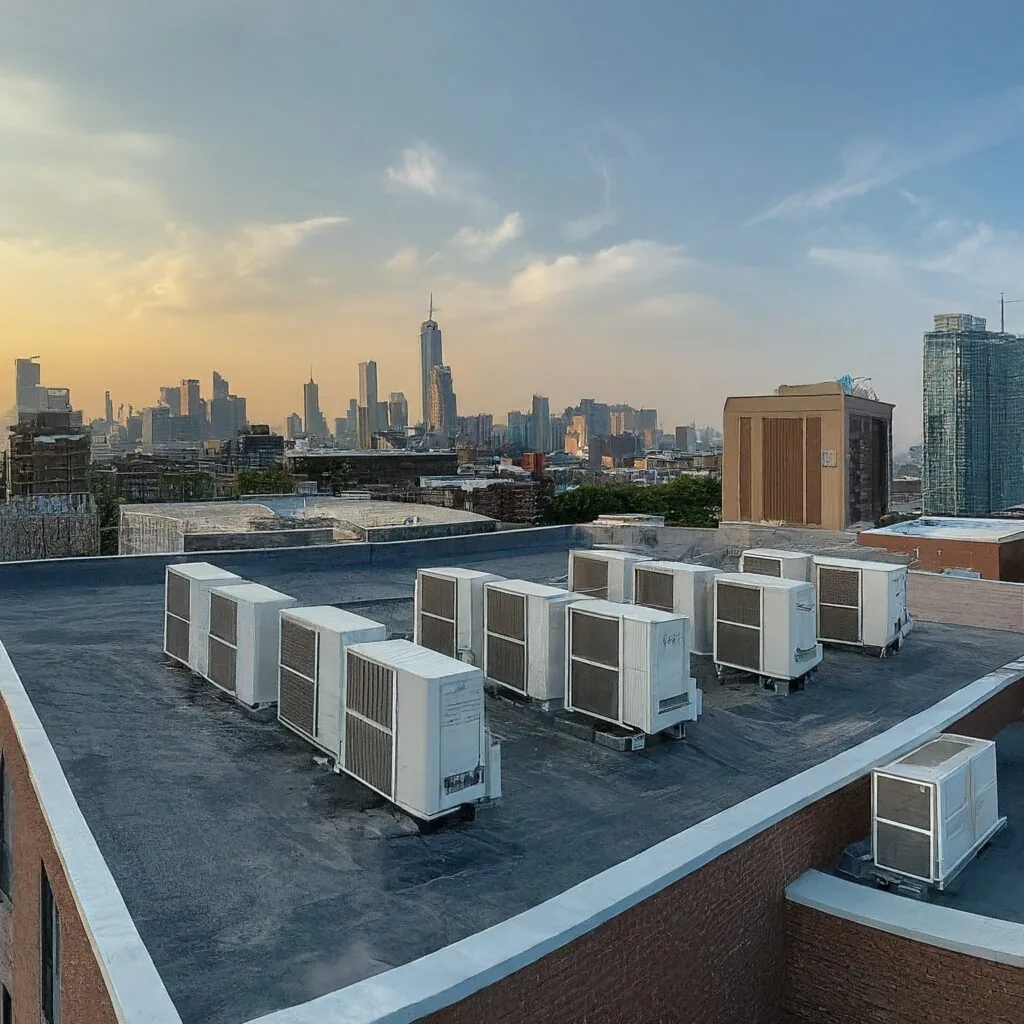
Sep 23 2024
Utility Heat Pump Incentives for HVAC
Dual fuel heat pump packaged rooftop units (RTUs) offer a versatile and energy-efficient solution for heating and cooling commercial buildings. By combining the efficiency of a heat pump with the power of a gas furnace,…
Continue Reading >
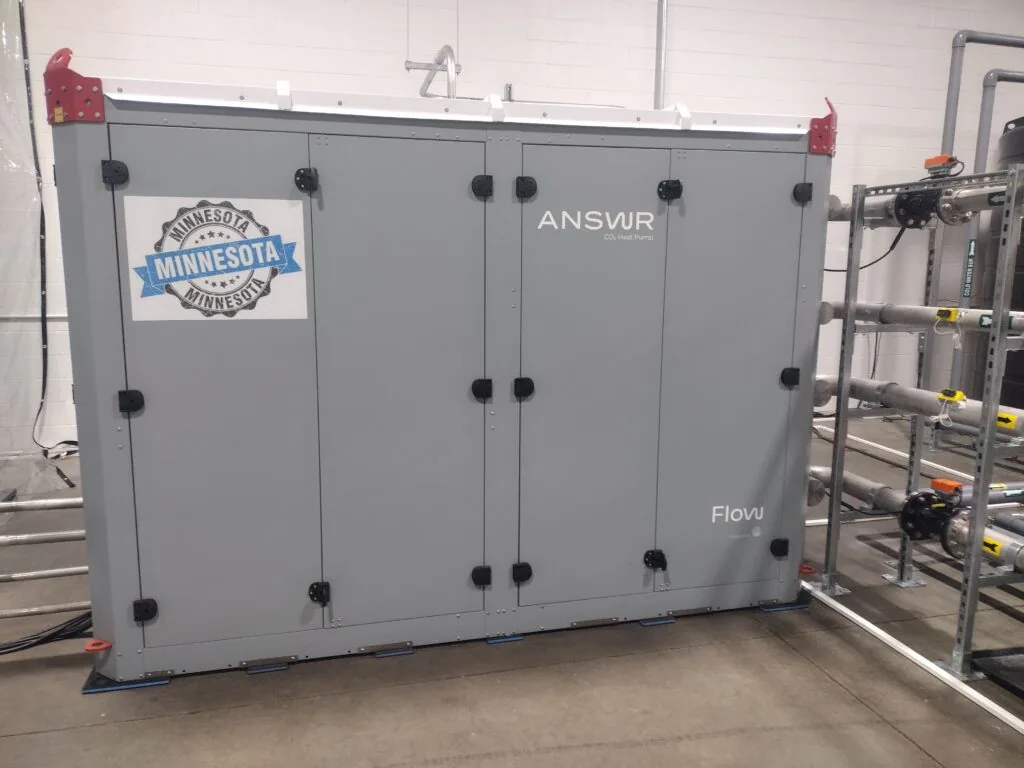
Apr 29 2024
What is a CO2 Heat Pump?
Traditional Heat Pumps use refrigerant to change stages based on pressure, transferring heat from inside a building and out (and vice versa in the winter). One of the big costs to heat pumps is Freon,…


